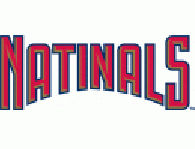|
Tuesday, June 9, is the date set for the annual baseball "first year player" draft.
The Nats acting-interim-provisional-temporary general manager, Mike Rizzo, held a pre-game presser prior to Sunday's game with the Mets to talk about this year's draft. The Nats will have the number one and the number 10 overall picks. They get that pick at number 10 because they couldn't sign their first round pick (also a pitcher) last year.
It is all-but-certain that the Nationals will pick the pitcher from San Diego State University, Stephen Strasburg. The press box consensus is that it will cost the Lerner family between $15 and $20 million to sign him which is a lot of sunglasses from the kiosk at Tyson's Corner shopping center.
There is no consensus as to who the Nats might pick at number 10, but it is unlikely they will roll the dice on two pitchers.
Each of the major sports handles it's draft differently. If the National Football League didn't hold its draft on a weekend, it would have long since been deemed a national holiday. Takes a level of confidence to pick 300 pound linemen to play in the NFL at the same place where the Rockettes do those high kicks during the annual Christmas show. For months preceding the NFL draft local radio sports shows listen to callers describing why the home team needs to draft some kid from Upper Iguana State for the O Line because they need someone who can get off on their left foot and this kid is the best in the country for that.
On the other hand, the NBA is so full of thieves and thugs that the league had to institute a lottery among the 14 worst teams to determine the order of the draft. This was designed to prevent teams who had no shot at the playoffs to purposely lose games to ensure they got the first or second pick. This, is because one player - a Patrick Ewing, Michael Jordan, Kobe Bryant or LeBron James - can turn a perennial loser into an instant winner.
None of that happens in baseball. The current draft process didn't even start until 1965. Rick Monday was the first player ever picked. He went onto have a pretty decent 19 year career with the Athletics, the Cubs and the Dodgers batting .264 and hitting 241 lifetime home runs. Not exactly Shaquille O'Neal numbers, though.
To show how dicey this major league thing is, especially with young pitchers, the second player drafted that year was a kid named Les Rohr by the Mets. According to baseball-reference.com Rohr appeared in six major league games over three seasons (67, 68 & 69) pitching about 24 innings and ending up with a career record of 2-3.
I think this is where the phrase "Les is Rhor" may have come from.
On the other hand, in that same draft, the Cincinnati Reds picked Bernie Carbo in the first round and a kid named Johnny Bench in the second. They more-or-less built the "big red machine" around those two picks, so one never knows.
Rizzo didn't give up much in the way of news. Team president Stan Kasten was sitting in the last row of the briefing room to ensure no news was made. Rizzo said there were about 1,600 players eligible for the draft and that the Nats had "about 800 names on [their] draft board."
He also said the draft pool is "weighted toward pitchers" and that overall it was an "average talent pool." Rizzo said that for position players (non-pitchers) it was probably the "thinnest pool in the past several years."
On Tuesday, Rizzo said, as the draft goes on, the time for last-minute shifts is over. "We honor the board," he said.
When he was asked whether picking first had any downside to it - meaning it might be hard to sign the overall number one pick - Rizzo said, "No. No downside at all." Then, after a pause, he said "the only downside is how out got the number one pick based on your performance the year before."
If things don't change soon, the Nats may well have the overall number one pick next year, too.
-- Rich Galen
|
